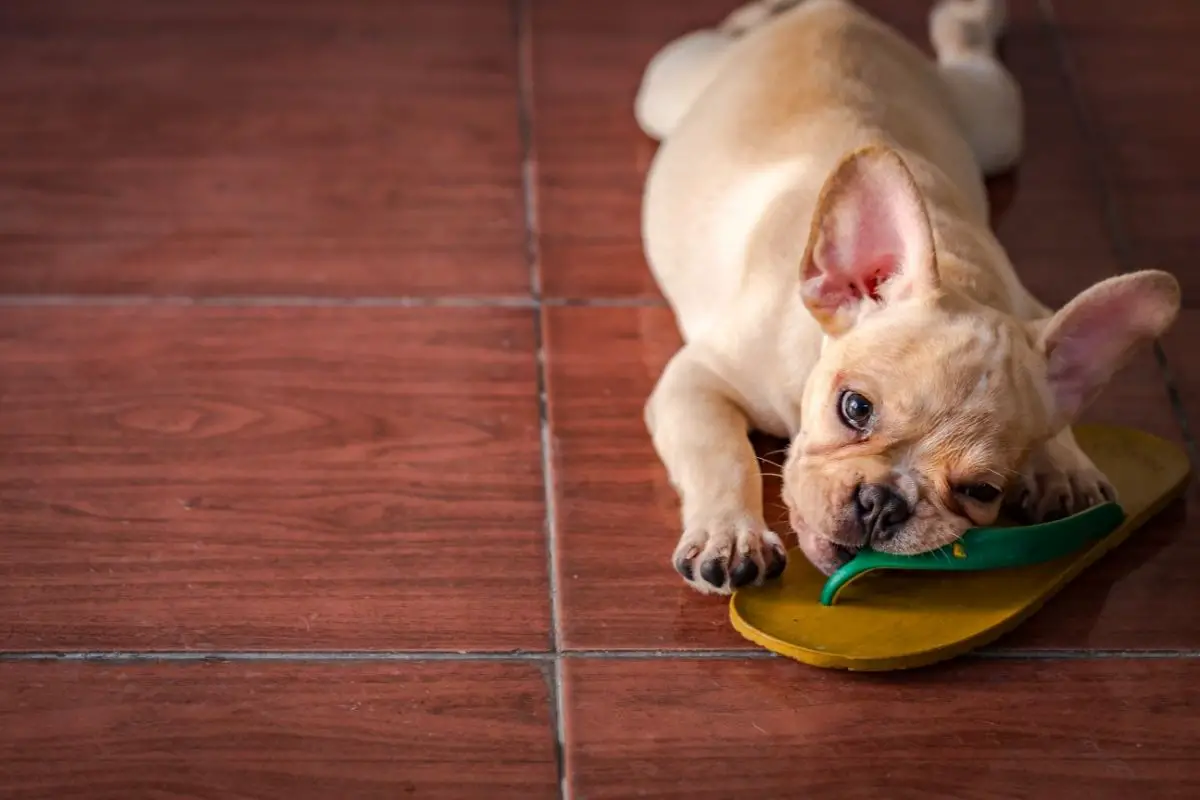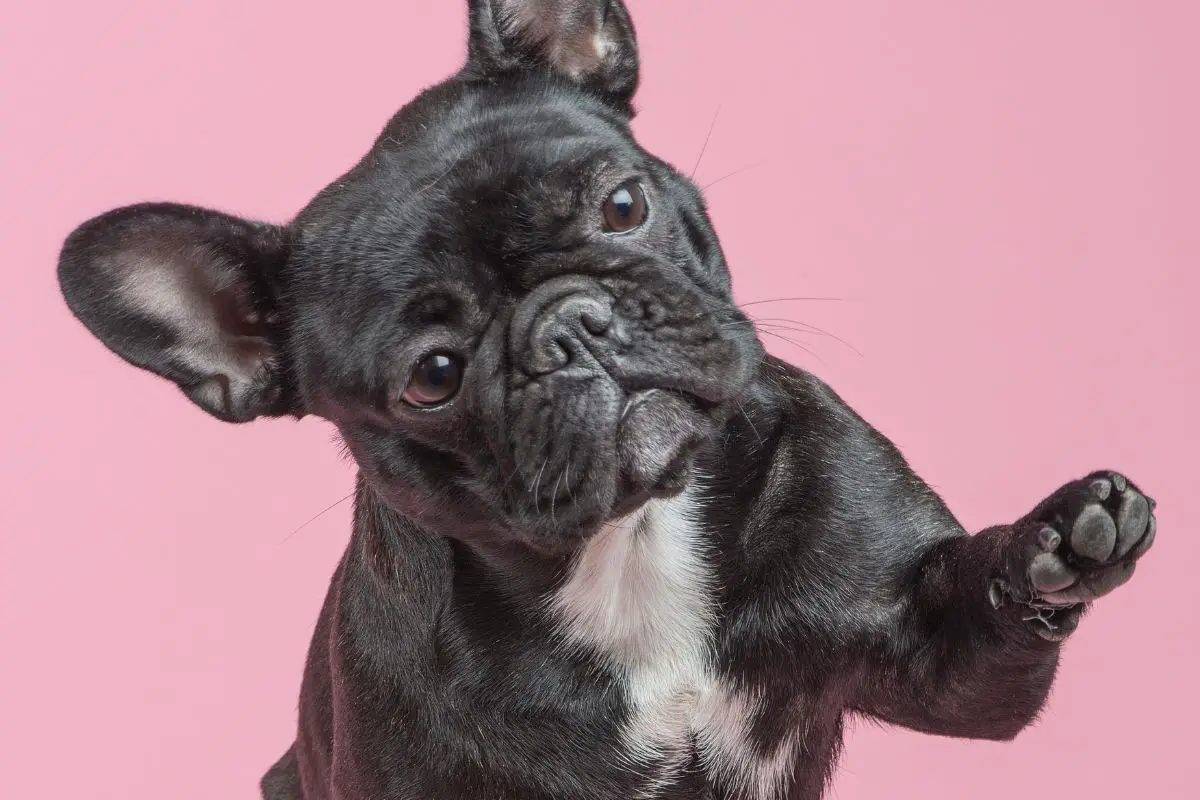We all know that bulldogs have a slightly unfair reputation as dangerous dogs and sometimes this can be true. However, that doesn’t mean that a dog is untrainable.
Bulldogs are one of the most popular breeds in America today. They’re known for their large size, powerful build, and friendly temperament.
But despite these positive traits, there are still many people who believe that bulldogs are not good pets.
There are two types of bulldogs: Smooth-Coated and Rough-Coated. The smooth-coated variety has a soft coat with no hair on its face or legs.
This type of bulldog is usually smaller than the rough-coated variety.
The History Of The Bulldog
The history of the bulldog goes back to Ancient Greece where it was used as a guard dog. As time went by, the breed became more refined. In fact, the first recorded bulldog was born in 1785!
These dogs were also used in the very cruel practice of bull-baiting. A bull would be tied down and then attacked by a pack of dogs. If he survived, he was released into the ring again.
Today, the bulldog’s popularity continues to grow. There are an estimated 1 million purebred bulldogs living in the United States alone.
Why Do People Think That Bulldogs Are Dangerous?
It may seem like common sense, but the truth is that many people think that bulldogs are dangerous simply because they don’t understand them.
Most people assume that bulldogs are aggressive just because they look big and strong. They see a bulldog and automatically think “dangerous.”
But bulldogs aren’t any different from other breeds when it comes to aggression. It’s just that they tend to be much larger than most dogs.
Bulldogs have some wonderful traits that make them very loyal and loving pets. Below we are going to list some of the best attributes of these canines.
Bulldog Traits
- Loyalty – Bulldogs are extremely devoted to their owners. They will do anything for you if you treat them right.
- Affectionate – These dogs love being around people. They are often described as having a gentle disposition.
- Trainable – Bulldogs are easy to train. They respond well to commands and learn quickly.
- Intelligent – Bulldogs are highly intelligent. They are smart enough to learn tricks and even speak English!
- Playful – Bulldogs love to play. They enjoy fetching balls, tugging at your pant leg, and playing games.
- Stubborn – Bulldogs are stubborn. They won’t give up until they’ve gotten what they want.
- Energetic – Bulldogs are always moving. They love running through the house and jumping up on couches.
- Adaptable – Bulldogs adapt easily to new situations. They’ll take to training quickly and adjust to almost any lifestyle.
- Mischievous – Bulldogs are mischievous. They love to sneak out of the house and hide things.
One of the main attributes of a French bulldog is that they love to be the center of attention. They are happy to perform tricks for their owner and show off their skills.
They are also great companions and will bond closely with their family members.
The French bulldog is also very energetic and simply loves playing in the park. It comes with tons of energy, but it can often be very trainable and sit with you around the house.
What Are The Behavioral Issues That Come With A French Bulldog?
The French bulldog has been bred over hundreds of years to become one of the most popular dogs in the world.
However, this doesn’t mean that all bulldogs are perfect. Some of them exhibit undesirable behaviors. Here are some of the behavioral issues that come with owning a French bulldog:
1. Aggression – This dog breed tends to be more aggressive than other breeds. They are not usually vicious or violent, but they can still bite if provoked.
2. Excessive Barking – If you own a bulldog, you should expect him or her to bark frequently. It’s part of their nature. However, excessive barking can cause problems.
3. Dog-Aggressive – Many bulldogs are known to be dog-aggressive. They may try to attack other animals such as cats or small children.
4. Clingy – Bulldogs are very clingy. They like to stay close to their owners and get into trouble if they’re left alone.
They also have high separation anxiety, which might cause them to become restless and damage the furniture.
5. Mischievous – They tend to be mischievous and sneaky. They love hiding things and getting into mischief. You’ll want to make sure that your house is completely puppy-proof
6. Begging – Bulldogs are very needy. They need constant attention from their owners and will beg for food or affection.
7. Excitable – Bulldogs are excitable. They like to run around and jump up on things. You’ll want to keep an eye on your pet so he doesn’t hurt himself.
8. Pulling the leash – Bulldogs are strong and powerful. They pull hard on their leashes when they want something. It’s best to teach your dog to walk calmly and patiently.
9. Stubborn – Bulldogs aren’t easy to break down. They don’t give up until they get what they want.
10. Rough playing – Bulldogs love rough play. They enjoy wrestling and tugging games. Make sure that your home is safe for your pet.
You might want to keep them from being too aggressive with young children.
Now that we’ve had a brief look at some of the behaviors, let’s have a look at them in-depth, along with some potential solutions.
Aggressive

Bulldogs are generally friendly and good-natured, but they can turn aggressive if they feel threatened.
This aggression can manifest itself in several ways. For example, your dog could nip at another animal or even bite someone who tries to touch him or her.
If your dog exhibits any of these signs of aggression, you must take immediate action. First, separate your dog from the aggressor.
Then, use a muzzle to prevent further attacks. Finally, call your vet immediately to ask for training tips.
Excessive Barking
Barking is a natural behavior for many dogs. However, it can become problematic if your dog barks excessively.
The problem starts when your dog begins to bark incessantly. He may start barking while you’re sleeping, eating dinner, or watching television.
You might think that your dog is just expressing his happiness, but this isn’t always the case. Your dog may actually be trying to communicate something else.
Dog-Aggressive
Many bulldogs are known to exhibit dog aggression. They may try to bite other animals such as cats and small children.
To avoid this type of aggression, you’ll want to train your dog not to attack others. The most effective way to do this is by using a training collar.
Clingy
Bulldogs are very clingy. If they’re left alone, they’ll often get into trouble. They also have high levels of separation anxiety, which causes them to become restless and destructive.
To help solve this problem, you should place your dog inside a crate whenever you leave him alone. This will allow him to calm down and rest without causing problems.
The common problems that are evidence of separation anxiety include:
- Urination
- Defecation
- Chewing on furniture
- Destroying furniture
- Running away
- Eating feces
- Pacing up and down
How To Help A Dog With Separation Anxiety
Separation anxiety is a serious condition that requires professional attention. Fortunately, there are several steps you can take to help your dog overcome this issue.
First, make sure that your dog has plenty of exercises and mental stimulation. Exercise helps relieve stress and reduces anxiety.
Second, try to spend more time with your dog than you normally would. When he sees you coming back home, he’ll know that everything is going to be okay.
Finally, you need to provide your dog with a comfortable environment. Try placing him in a room where he feels secure and content.
You can also develop counter-conditioning techniques to help your dog.
One good method of doing this is to reward your dog whenever you leave the room, so it associates treats with you being absent and will experience good feelings as a result.
Mischievous
Bulldogs are very mischievous. They love to hide things and get into mischief. They also have high amounts of energy, making them prone to accidents.
To prevent your dog from getting into trouble, make sure that he has plenty of exercise and toys. Also, keep your house clean so there won’t be anything dangerous lying around.
Pulling the Leash
Your dog loves to run and play. Unfortunately, he doesn’t always know how to behave properly.
He may pull on his leash when he wants to go outside. In addition, he may pull on his leash during walks. To prevent this from happening, teach your dog to walk nicely.
He’ll need lots of practice before he masters this skill. Start off slowly, and work your way up to longer distances.
Stubborn
Bulldogs are stubborn at some point or another. They don’t like to listen to instructions and tend to ignore their owners.
To help your dog learn better manners, reward him when he behaves well. Use positive reinforcement techniques to encourage him to obey.
Also, never force him to perform an unwanted task. Instead, give him time to master new skills.
Rough Playing
Bulldogs love to rough play with each other. They enjoy wrestling and playing tug-of-war.
Unfortunately, this activity can cause serious injuries. It’s best to discourage your dog from engaging in rough play.
Start out gently and gradually increase the intensity of the game. You can even use a soft toy instead of a rope to play tug-of-war with your dog.
What Happens If Your Dog Starts Chewing?

If your dog starts chewing something, it could mean one thing: anxiety.
It is not uncommon for a dog to develop attachment issues with its owner and start gnawing on pretty much anything in sight.
This is why you should think about developing certain coping strategies.
Sometimes your dog will just love to chew on things. This is especially true for teething puppies. One method of getting around this problem is to puppy-proof your house.
You can do this by getting rid of any objects that are valuable to you.
Make sure that you also get rid of valuable pieces of cloth, otherwise, you could run the risk of having them chewed.
This includes throws, pillows and any hazardous substances and foods that might be lying around the house.
Another way to deal with this issue is to put down newspapers in front of your pet. This will act as a deterrent and stop him from chewing.
If your dog still continues to chew, then you should consult a vet. He may require medication to calm him down.
How To Prevent Your French Bulldog From Chewing
The most important rule to follow if you want to avoid your dog from chewing is to supervise him all the time. Make sure that he isn’t chewing anything that could harm himself.
You should also try to limit his access to items that he likes to chew. For example, you should remove his favorite toys immediately after he finishes chewing on them.
You should also consider buying him a chew toy that he can safely chew on. This will help him release his pent-up energy.
Jump Scares
One method of discouraging your dog from chewing and other naughty behavior is by creating a loud noise so that they jump during the bad behavior.
This will disrupt their concentration and cause them to have a bad reaction.
They will soon associate this short, sharp shock with bad behavior and will cease doing it so they won’t receive the shock any longer.
You can do this to decrease the dog’s separation anxiety, except that you’ll need to do the opposite and treat the separation so that they will associate this with a good feeling and treats.
This technique works well when used in conjunction with training techniques.
This is not just a good method of stopping them from chewing, but it will prevent them from stealing food.
If your dog is on the kitchen counter and is trying to get at your bread, then a great method of stopping this will be to clap or shout suddenly.
What If Your French Bulldog Does Not Respond To Clapping?
It is possible that your dog does not respond to the sound of clapping because they don’t like being startled. Therefore, you should try using different methods.
You can also use a different type of noise such as a whistle or an air horn instead of clapping.
When you’re ready to train your dog, make sure that you reward them whenever they stop doing the unwanted behavior.
You can also get an air hisser. This works by emitting a sharp hiss by using compressed gas. The dog simply hates this sound and will do whatever they can to stop hearing it.
Dog Training Tips – How To Stop A Dog From Nipping
Nipping is very common among dogs. It’s usually caused by stress or boredom. You can easily solve this problem by making sure that your dog has enough exercise and stimulation.
Make sure that your dog gets plenty of walks, playtime, and socialization. These are essential for keeping your dog happy and healthy.
Another thing that you can do to prevent nips is to keep your dog away from your children when they are younger. This will ensure that they don’t feel threatened by your child.
You can then slowly introduce your dog to humans for increasing lengths of time. Start by putting your dog in the vicinity of people for a few minutes, then withdrawing them.
Slowly increase the length of time that you do this until they become more comfortable around people.
If your dog is a rescue dog then they might be very wary of humans.
You might want to keep these dogs away from humans in general, as this will be a source of much anxiety for them and the people around them.
Barking And Whining
There are many reasons why your dog might be barking. Very rarely will a dog bark for no reason, although there are some breeds that suffer from excessive barking.
Here are some reasons why your dog might be barking:
- Your dog may be lonely and wants attention.
- They may be bored or stressed out.
- They could have been exposed to another dog who was barking.
- They may be protecting their territory.
- Some dogs bark because they are afraid.
If you are worried about any of these things, then you should talk to your vet. They can help you figure out what is going wrong and how best to deal with it.
Many dogs bark and whine when left alone. They may even start barking if they see someone coming up the driveway.
These behaviors are quite normal, especially for dogs who live in busy areas.
However, there are some ways that you can help your dog to calm down and behave better when they are left home alone.
First off, you should teach them how to sit quietly. This means teaching them to stay still while you leave the house.
When you return, give them their favorite toy or meal to encourage them to remain quiet.
Next, you should teach them to lie down. This is a great way to relax your dog and reduce any unnecessary barking.
Finally, you should teach them what to do if they hear noises outside. Teach them to look at the door before opening it so that they know whether or not it is safe to go outside.
When your dog barks excessively, it can cause problems for both you and your neighbors.
You might want to consider removing all the stimulation in your dog’s vicinity at the start of its training. This might stop it from barking.
Begging
Dogs beg for food when they are hungry. Begging is a natural behavior that most dogs exhibit.
If you feed your dog on demand, then he will certainly think this is good behavior and will continue to do it more.
There could be many reasons why your dog is begging:
- He could be hungry.
- He could be thirsty.
- He could be sick.
- He could be lonely.
- He could be trying to get your attention.
It is important to remember that dogs don’t understand human language. Therefore, they cannot tell us exactly what they want. Instead, they show us what they need through their actions.
The first step towards stopping your dog from begging is to make sure that they always have access to water. Dogs who are dehydrated often begin to beg for food.
You should also try to find out why your dog is begging. Is he really hungry? Or does he just want something else? It is possible that he has an underlying medical condition that needs treatment.
As long as your dog is getting enough exercise, he won’t necessarily beg for food. In fact, he might actually prefer to play instead.
However, if your dog is constantly begging for food, then you should probably take him to the vet. He could be suffering from malnutrition or have an illness such as diabetes.
How To Stop A Dog From Begging

To stop your dog from begging, you must first determine why he is doing it. Once you’ve done that, you’ll need to decide what you’re going to do about it.
If your dog is begging because he is hungry, then you should feed him immediately. The sooner you feed him, the less likely he is to beg again.
If your dog is begging because he wants something else, then you should give him what he wants. For example, if he is begging for a walk, then you should take him for one.
If your dog begs because he is lonely, then you should spend time with him. Play games with him, talk to him and offer him affection.
If you ignore your dog while they are begging, then they will eventually stop this behavior. However, if you punish your dog when he starts begging, then he may never learn to stop.
You have to make sure that your dog is plenty entertained and you’ll have to be patient with this behavior. One of the key things to have is consistency with everyone who encounters the dog.
If you have one person enforcing the training and another person rewarding the dog’s bad behavior, then you might see your dog being confused and continue begging.
Pulling On The Leash – A More In-Depth Solution
A dog pulling on his leash is not only annoying but it can also lead to accidents.
Pulling on the leash causes the dog to pull back on himself, which can result in injury to the dog or even damage to the owner’s clothes.
When walking your dog, you should use a gentle tug on the leash rather than yanking it. This way, you can control how fast your dog walks without hurting him.
If your dog pulls too hard on the leash, then you should consider using a harness instead. Harnesses allow you to keep your hands free so that you can easily grab onto objects.
This type of harness allows you to hold the leash firmly at all times. You can also adjust the length of the leash depending on how much slack you want between you and your dog.
If you don’t like the idea of wearing a harness, then you can still use a leash with a clicker collar attached to it. These collars emit a sound whenever the dog hears them.
The sound helps to train your dog to listen to you. When your dog hears the clicker, he knows that he has done well and that he should follow you next time.
If your dog keeps pulling on the leash, then try switching out the leash for a different one.
Another option is to give your dog a treat when they are not pulling on the lead. By giving your dog a tasty reward, you can encourage him to behave properly.
If none of these methods work, then you should get some professional help. If your dog is pulling on the leash, he needs training classes or therapy sessions to teach him better manners.
How To Stop Your Dog Jumping On People
Dogs love jumping up on people. It’s their favorite game! They jump on us just about every chance they get.
It’s not always fun for people, though. A dog might cause a stranger significant anxiety if they are jumping close to their face.
Often, a French bulldog will not mean any harm by jumping up on you, however, some dogs tend to nip and this can lead to some quite serious problems.
If a dog has been known to attack people and bite them on the face, then this could lead to some serious consequences for your pet and they might get put to sleep.
One method of stopping this from happening is the old treat and reward system.
When your dog is firmly on the floor, make sure that you will reward them with a treat. This way they will associate the good treat with being firmly on the floor.
You can also employ the other method of using the air horn or clapping when they jump up. This way they’ll know that jumping up on people is bad and that they should refrain from doing it.
What Happens If Your Frenchie Resists You Calling Them
A French bulldog may be very stubborn, especially when it comes to obedience training. Many owners find that their pets have a mind of their own and refuse to obey commands.
There are many reasons why this happens. Some dogs simply do not understand what they’re supposed to do.
Others are afraid of something and cannot overcome their fear. Still, others are bored and would rather play around than learn new things.
Whatever the reason, there are ways of dealing with this problem. The first thing you need to do is figure out why your dog refuses to obey you.
Are they scared? Do they feel threatened by certain objects or situations? Is there an issue with your house rules?
Once you’ve figured out what the problem is, you need to come up with a solution.
Is your dog afraid of loud noises? Then you might want to keep your dog away from noisy places.
Do they prefer to stay in the kitchen instead of going outside? Make sure that you let them go outside as much as possible.
Do they like to hide under furniture? Try putting down some blankets so that they don’t feel trapped.
Our Final Say
We hope that our guide to some of the more problematic behaviors of your French bulldog has helped you to identify what exactly might be up with your dog and how to solve the issue quickly and effectively.



